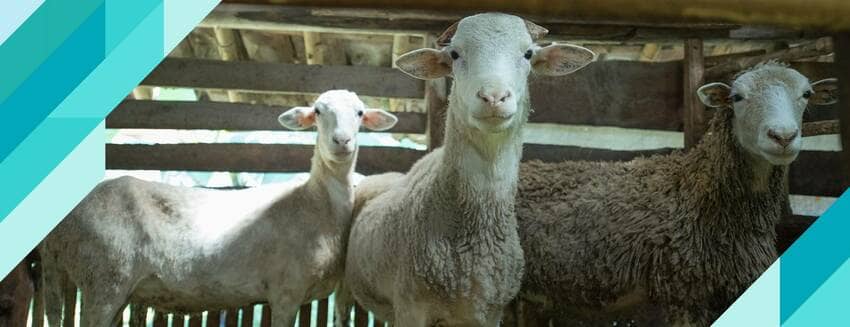
As the Feast of Sacrifice approaches, experts warn novice butchers who prefer to slaughter their victims themselves instead of getting help from professional butchers. Emphasizing that the slaughter must be done by expert butchers, experts point out that the tools must be clean and sharp.
Dr. Faculty Member Rüştü Uçan, Director of Üsküdar University Occupational Safety, Occupational Health and Environmental Health Application and Research Center, gave advice against possible accidents that may occur during slaughter.
Expert butchers should do the slaughter
Rüştü Uçan noted that in order to prevent possible accidents during slaughter, help from experts should be sought and especially the slaughter of bovine animals should be done by butchers, "One of the most important elements of occupational safety is to have the work done by the person who is an expert in that job. Having butchers do the slaughtering of cattle in particular will significantly reduce the number of accidents. The tools must be sharp and clean, the cutting tools you will use during slaughter must be complete. These tools should be sharpened every year. In addition, butcher's gloves with steel braids and wrist belts should be used against possible hand cuts."
Knives should be washed with antiseptic
Emphasizing that the tools used during cutting should be hygienic, Dr. Faculty Member Rüştü Uçan said, "Knives and all cutting tools to be used in cutting should be washed and cleaned with antiseptic. At least they should be wiped with alcohol or cologne. Tools should neither be too sharp nor too blunt. Injuries can be more serious if they are too sharp. The victim suffers because the tools are not sharp," he said.
1 meter distance should be maintained
Stating that environmental safety is also important during the slaughter of the sacrifice, Dr. Faculty Member Rüştü Uçan said, "During the slaughter of the sacrifice, there should be at least 1 meter distance between the people nearby. This distance is important to prevent any accident. The victim's leaping for his life is another risk and the victim should be tied very well."
Sacrificial animal must have passed veterinary control
Stating that attention should be paid to the veterinary control when buying sacrifices, Dr. Faculty Member Rüştü Uçan said, "Because there are infectious diseases that pass directly from animals to people. You can prevent this by buying controlled animals. The control marks on their ears provide this. Use the areas designated by the municipalities. Municipalities pay utmost attention to hygiene rules. Hygiene rules should be followed both during and after slaughter," he said.
Stating that the skin of the victim should be removed without wounding and should be rubbed with rock salt and stored, Dr. Faculty Member Rüştü Uçan said, "This process is important in order to contribute to the economy. Therefore, it would be beneficial to have experts for this job for both economic and security reasons."
Plastic containers are poisonous
Mustafa Cüneyt Gezen, Lecturer at Üsküdar University, Textile Chemical Engineer, emphasized that plastic containers should never be used in the storage of sacrificial meat. Noting that the chemicals in plastics pass into food when they come into contact with food, Gezen said, "Examples of these chemicals include Bisphenol A, PCB, PBB and PBDEs. Their passage into food is due to the effect of temperature. The higher the temperature, the easier it is for harmful substances to pass into food. Moreover, they are metabolized in our body in the form of pseudo estrogen, i.e. estrogen mimic. As a result, it causes infertility in men and women, breast cancer in women and neuropsychological disorders. Therefore, it is more harmful to store fatty and hot foods in plastic containers."
Do not put the sacrificial meat in a bag while it is hot
Mustafa Cüneyt Gezen, who stated that it is also inconvenient to share the sacrificial meat slaughtered on Eid al-Adha by placing it in hot plastic bags without resting outside, listed his recommendations as follows: "The toxic chemicals in the plastic are transmitted to the sacrificial meat with the effect of heat and from there to humans. Therefore, after letting the sacrificial meat cool for a certain period of time, carry it in bags. Use thick bags that will not leak. It is more convenient to carry it on trays without putting it in bags. During this time, the meat cools down and bacterial growth is reduced. After cooling, the meat to be distributed should be bagged."
Meat should be wrapped in greaseproof paper
Emphasizing that the contact of carcinogenic chemicals in plastics with food is very dangerous for human health, Gezen said, "In order to prevent such contamination, it would be correct to wrap the sacrificial meat in greaseproof paper first and then bag it. It will also be useful to keep the mouth of the bags open. It is also recommended that the sacrificial meat be included in the cold chain and stored in a healthy way."
